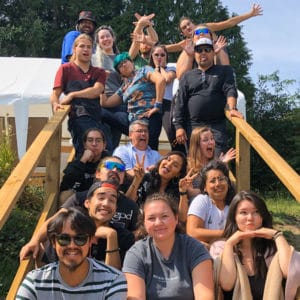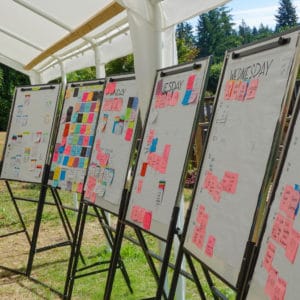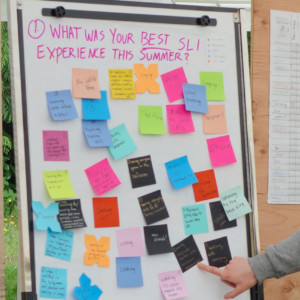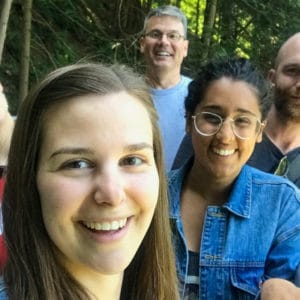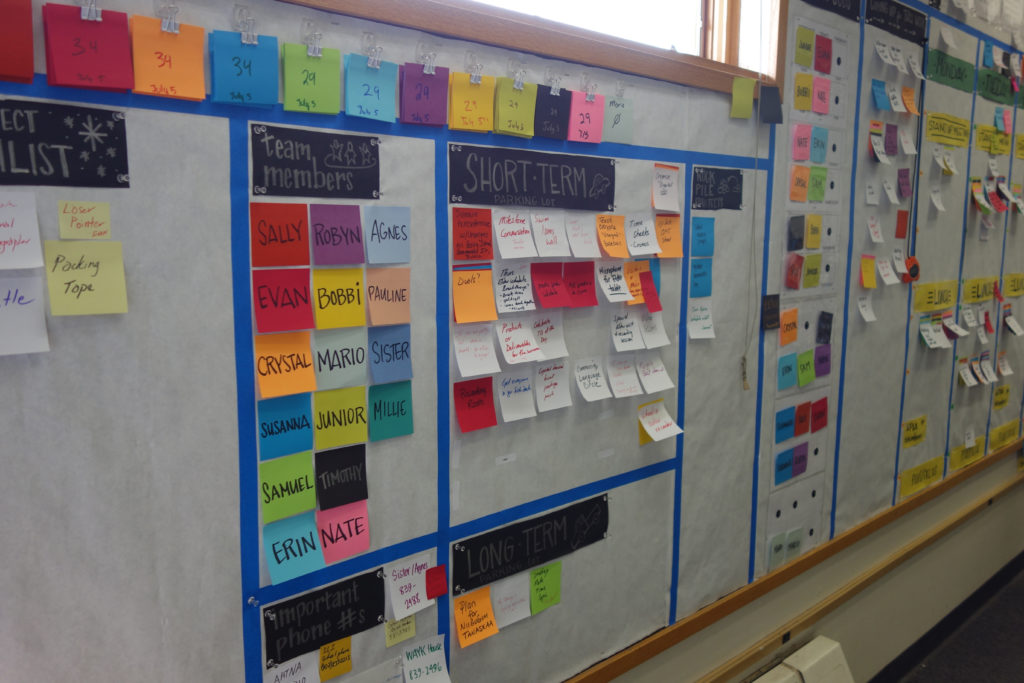
It can be hard to imagine what a language revitalization summer looks like, but working to strengthen a language is a full-time endeavor. Here’s an updated look at what to expect from the WAYK Summer Intensive Schedule in 2017.
As with any program centered around language learning, it’s essential that we have daily contact with the language in an immersion environment. However, it’s equally important to have adequate time to relax, have fun, and take care of ourselves so that we have a chance to process what we’ve learned and be ready for the next day’s work.
Here’s an example of our weekly schedule during our Atka Summer Intensive in 2016. What isn’t pictured here is that, in addition to our daily schedules, we had rotating schedules for cooking and cleaning and even showering in the morning (five people sharing one bathroom made a schedule necessary!). Take a look:
Sample WAYK Summer Schedule WeeklyAlthough every summer is a little bit different, the WAYK team typically works with local and regional language team members from 9:00 am – 4:30 pm, five days a week, for 11-12 weeks. Our evenings and weekends are usually reserved for unwinding, but often are filled with impromptu conversations about language revitalization and immersive language hunts. It can take some time at the beginning of the summer to fine-tune the schedule to meet our exact needs. We need to take into account details as important as when our fluent speakers are available and as minor as how long it takes us to commute to work (are we going by car? on foot?).
Our daily schedule for 2017’s Summer Intensive in St. Paul will likely look very similar to the Atka schedule (above). Here’s a tentative idea of what our week-by-week schedule will look like.
2017 Summer Intensive Week-by-week OverviewIf you’re interested in participating in the 2017 Summer Intensive, check out more information about the project and the internships that are available. Or head over to our application page to apply for a position as an intern.

